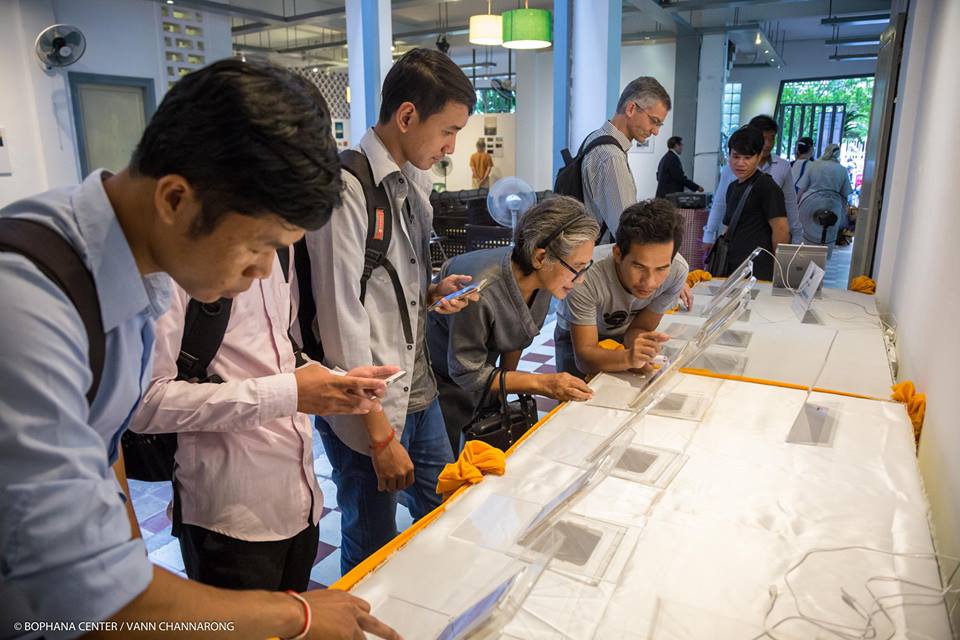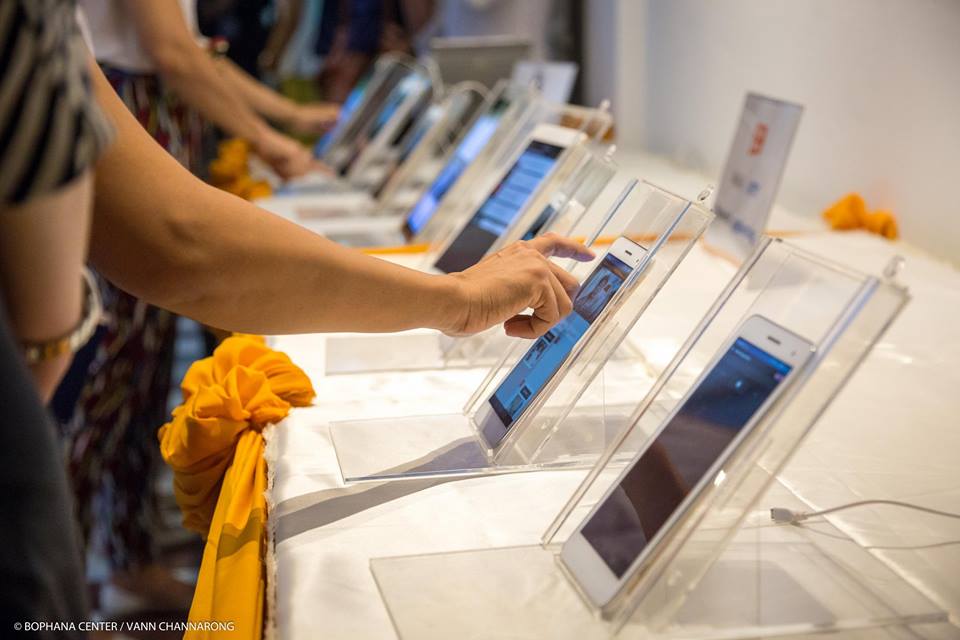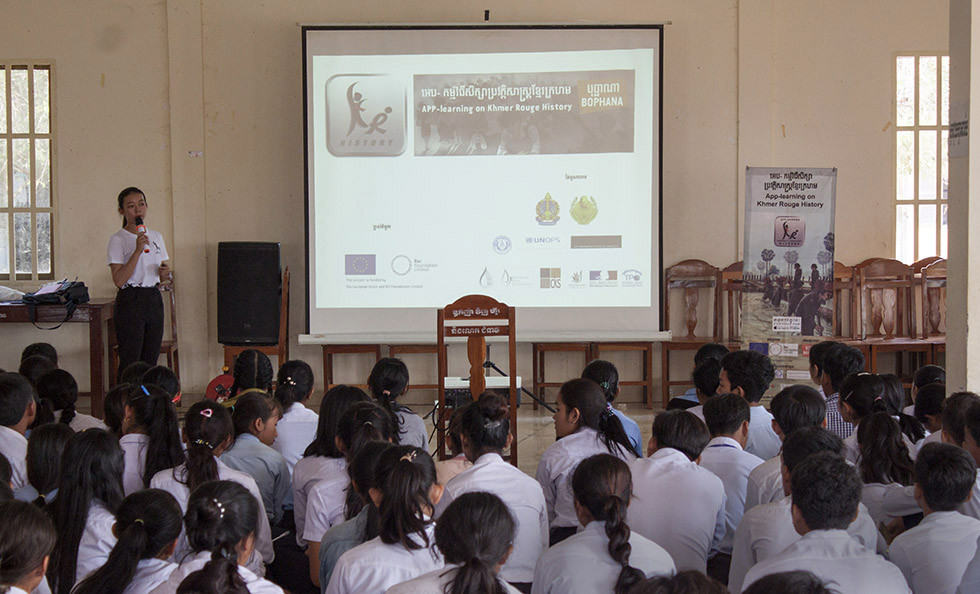Khmer Rouge History educational app to be translated into Japanese
8 December 2024
The audio visual app developed by Bophana Center will soon be available in Japanese

© Bophana Center / Vann Channarong
In 2016 Bophana Audiovisual Resource Center began to work on an educational smartphone app, Khmer Rouge History. Its role is to assist in the teaching of Cambodian history, particularly the Khmer Rouge era, to high school and university students, and it is downloadable free of charge. The development of the app was supported by Rei Foundation and the European Union, and provides an account of the period before, during and after the Khmer Rouge, presented through archival photographs, video and text.
The app was designed to meet a need for accessible, comprehensive historical information for students; until relatively recently Cambodian history had been left out of school curricula, and the Khmer Rouge is a taboo topic in many family environments. The information included was agreed upon by a committee of scholars, historians and others to ensure that it is as impartial and thorough as possible. Engagement with the app has exceeded expectations, with 60,000 app downloads and counting.
The Khmer Rouge was in power from 1975 until 1979, but for those affected, the end of the war in 1975 was not the end of its effects. The historical violence of the Khmer Rouge continues to affect future generations and causes people to suffer, including the Cambodian diaspora in Japan.
Society today cannot be held responsible for wars that have happened in the past, but we do have a responsibility to think about how they can be prevented in the future. It is therefore essential to preserve and record people's experiences and to pass them on to future generations. The Khmer Rouge History app is one way to achieve this. We also anticipate that it will be a catalyst to create a dialogue between survivors and the younger generations.

© Bophana Center / Vann Channarong
The Khmer Rouge was in power from 1975 until 1979, but for those affected, the end of the war in 1975 was not the end of its effects. The historical violence of the Khmer Rouge continues to affect future generations and causes people to suffer, including the Cambodian diaspora in Japan.
Society today cannot be held responsible for wars that have happened in the past, but we do have a responsibility to think about how they can be prevented in the future. It is therefore essential to preserve and record people's experiences and to pass them on to future generations. The Khmer Rouge History app is one way to achieve this. We also anticipate that it will be a catalyst to create a dialogue between survivors and the younger generations.

A classroom session, using the app to learn about Cambodian's History
In recent years, Rei Foundation has been involved in supporting artistic and historical storytelling projects with Cambodian communities in Japan. The knowledge and understanding of these communities is inevitably distinct from that of Cambodians who remained, however here too there exists a lack of information and communication around the Khmer Rouge and its historical context among the diaspora in Japan, particularly among those in the second and third generations. The response from Cambodian community members of all ages to Kim Hak’s Alive IV project was enthusiastic, and it is clear that there is an appetite to continue to learn and share these difficult histories.
Dissemination of the translated app in Japan will take a different form than the Khmer version. The initial Khmer app was introduced via public schools all over Cambodia; the Japanese iteration will be targeted to members of the small Cambodian community in Japan and be available to all readers of Japanese. We also hope it will inspire other groups in Japan to identify their own needs and address them within their own community.
The app will be introduced at community events, and the project team will consider other ways to ensure it reaches as large an audience as possible.
We believe in the power of storytelling and the open sharing of information to strengthen communities, and are therefore very pleased to support the translation of this groundbreaking app to make it accessible to the diaspora community in Japan.
Return to Journal




